Climate change threatens what’s left of Japan’s cormorant fishing legacy
Youichiro Adachi is the 18th generation of his family to be a master cormorant fisherman, and one of about 50 people carrying on the 1,300-year tradition of using trained birds to dive for fish, writes Kim Kyung-Hoon
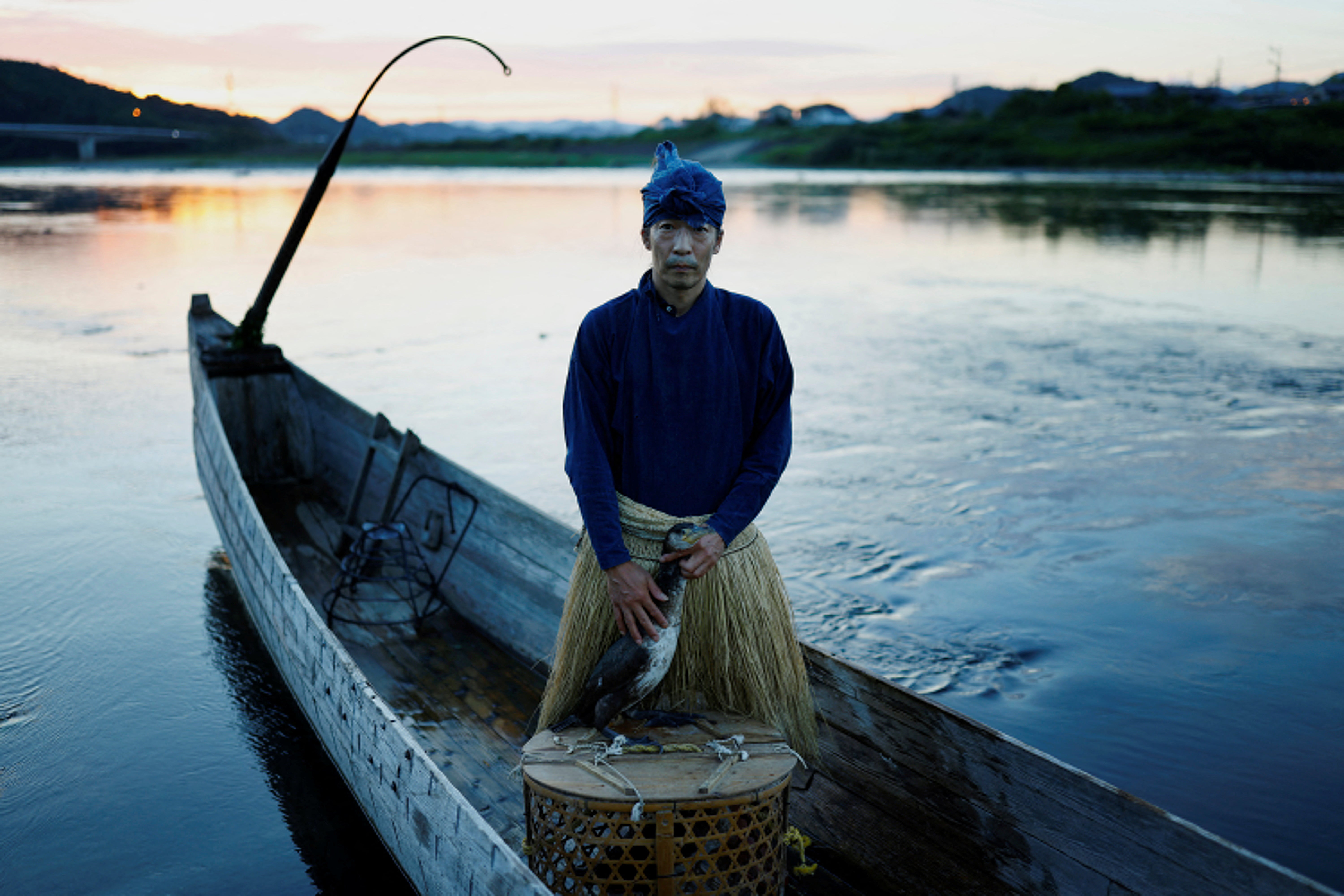
Cormorants have been a constant presence in Youichiro Adachi’s life, and when he was young, he cried whenever one of his family’s birds died.
Now 48, Adachi still cares deeply for his birds, drawing them out of their baskets each morning and stroking their long necks to confirm their health and maintain a bond.
“For me, cormorants are my partners,” he said.
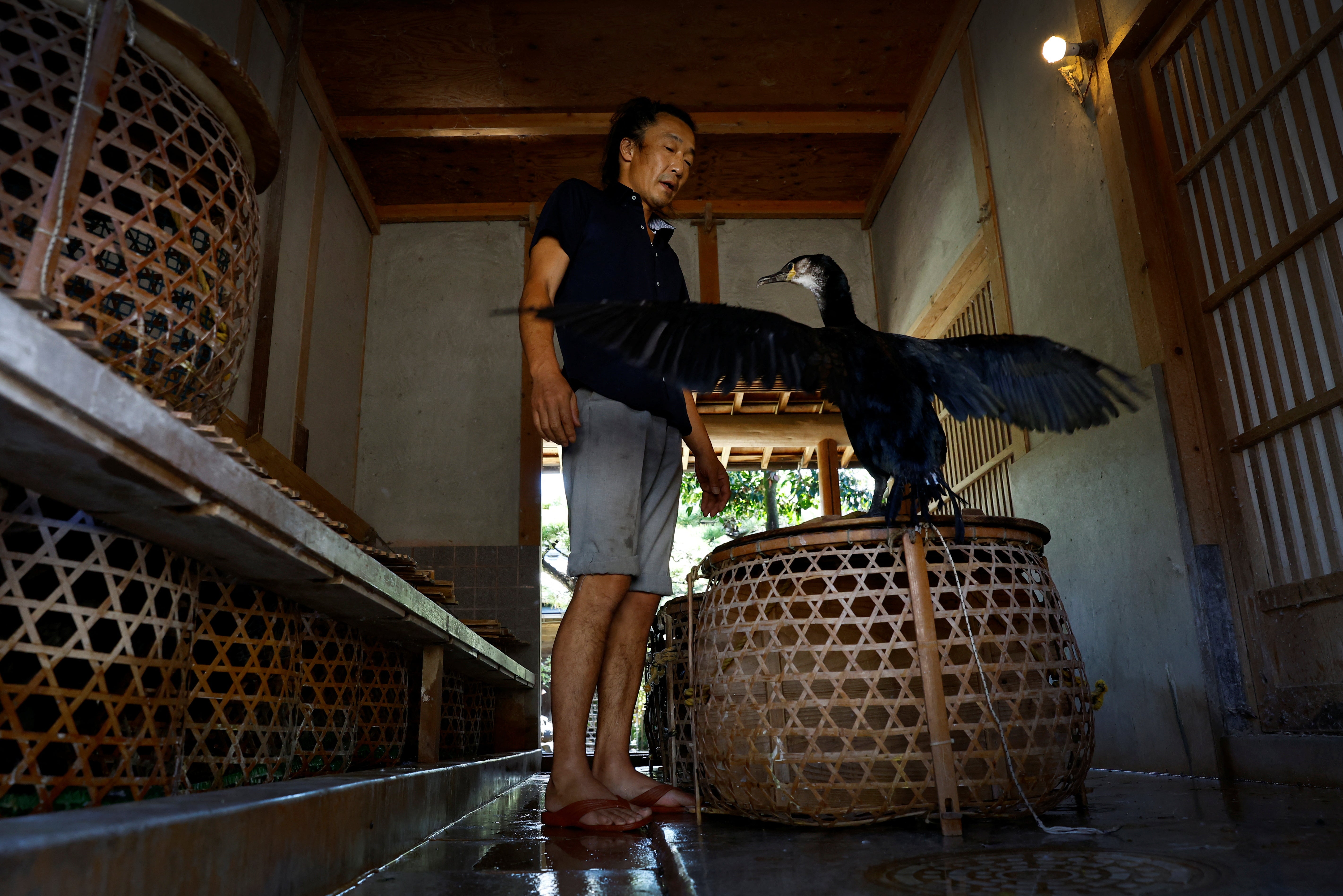
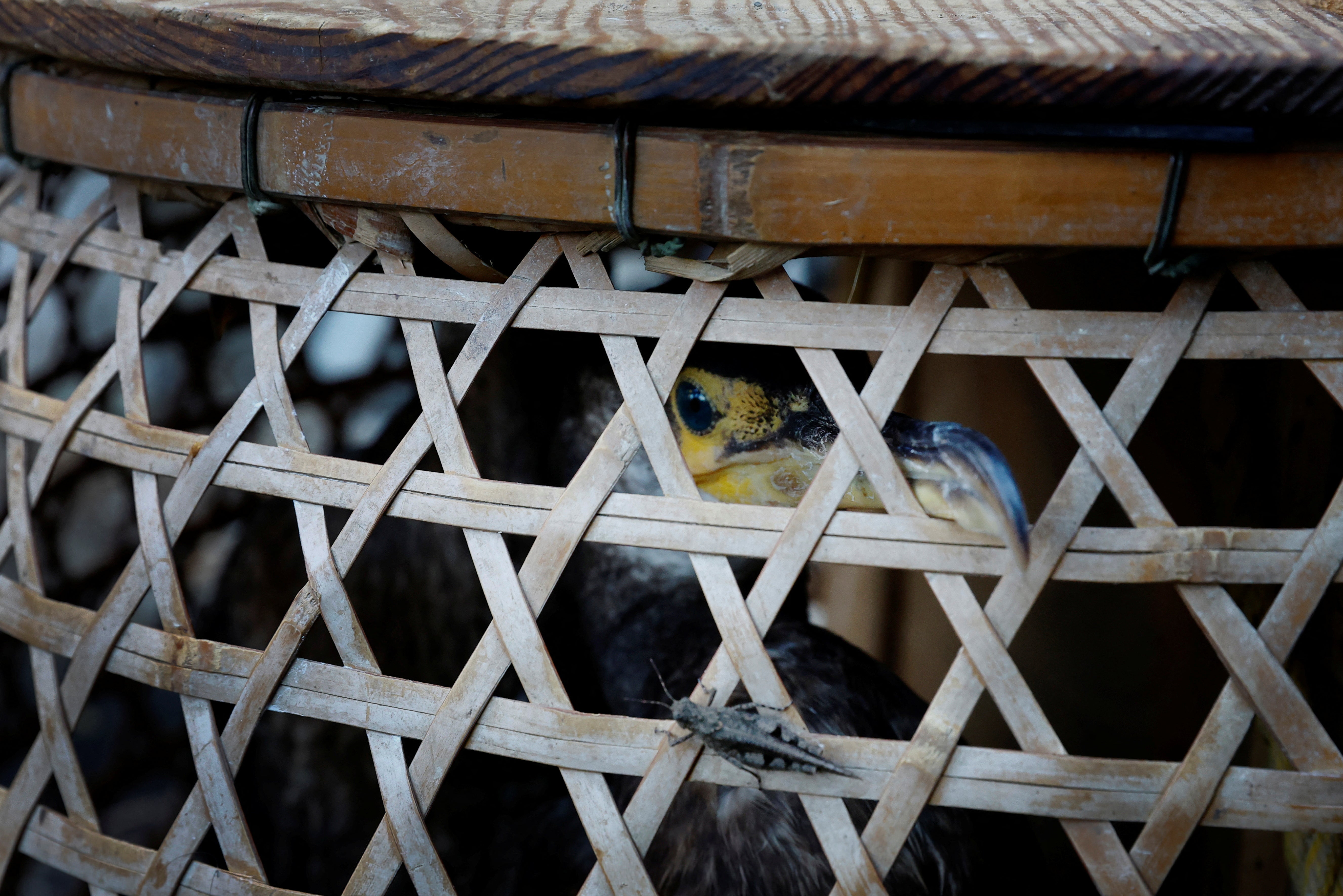
Adachi is the 18th generation of his family to be a master cormorant fisherman, and one of about 50 people in Japan carrying on the 1,300-year tradition of using trained birds to dive for fish. It is considered the ideal way to catch the sweet ayu river fish, and his family has a hereditary mandate to supply the delicacy to the Japanese imperial household.
The method, known as ukai, was once common in Japan and a version of it has also been practiced in China. But today it is largely supported by tourists, who watch the fishermen and their birds bringing in the day’s catch.
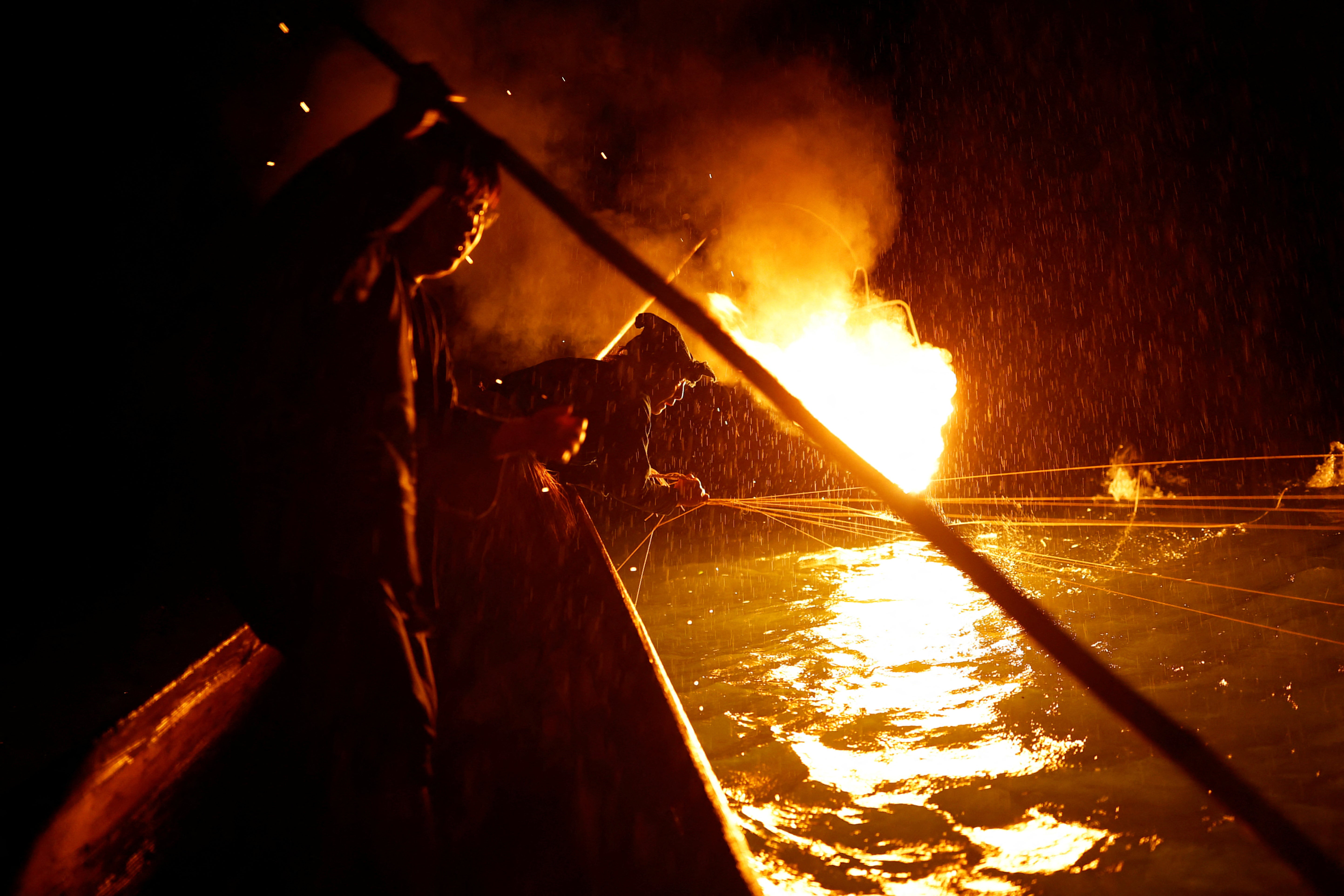
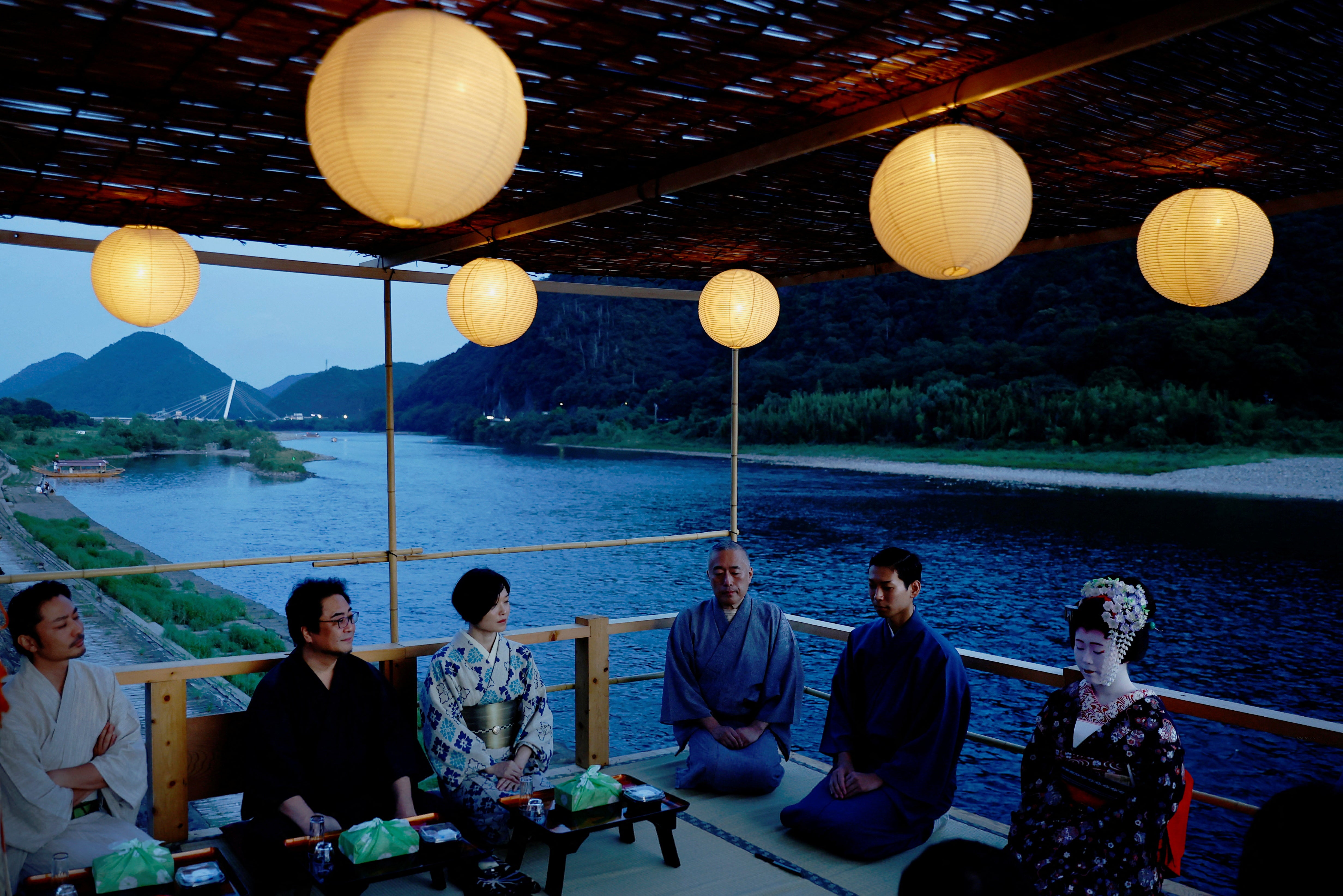
Now, environmental changes are making the fish ever more scarce and small, endangering the lifeline of the fisherman, known as usho, and their flocks.
“I go to the river every day so I can feel the changes,” Adachi said, drawing upon nearly four decades of working on the Nagara River in Oze, a town in central Gifu Prefecture.
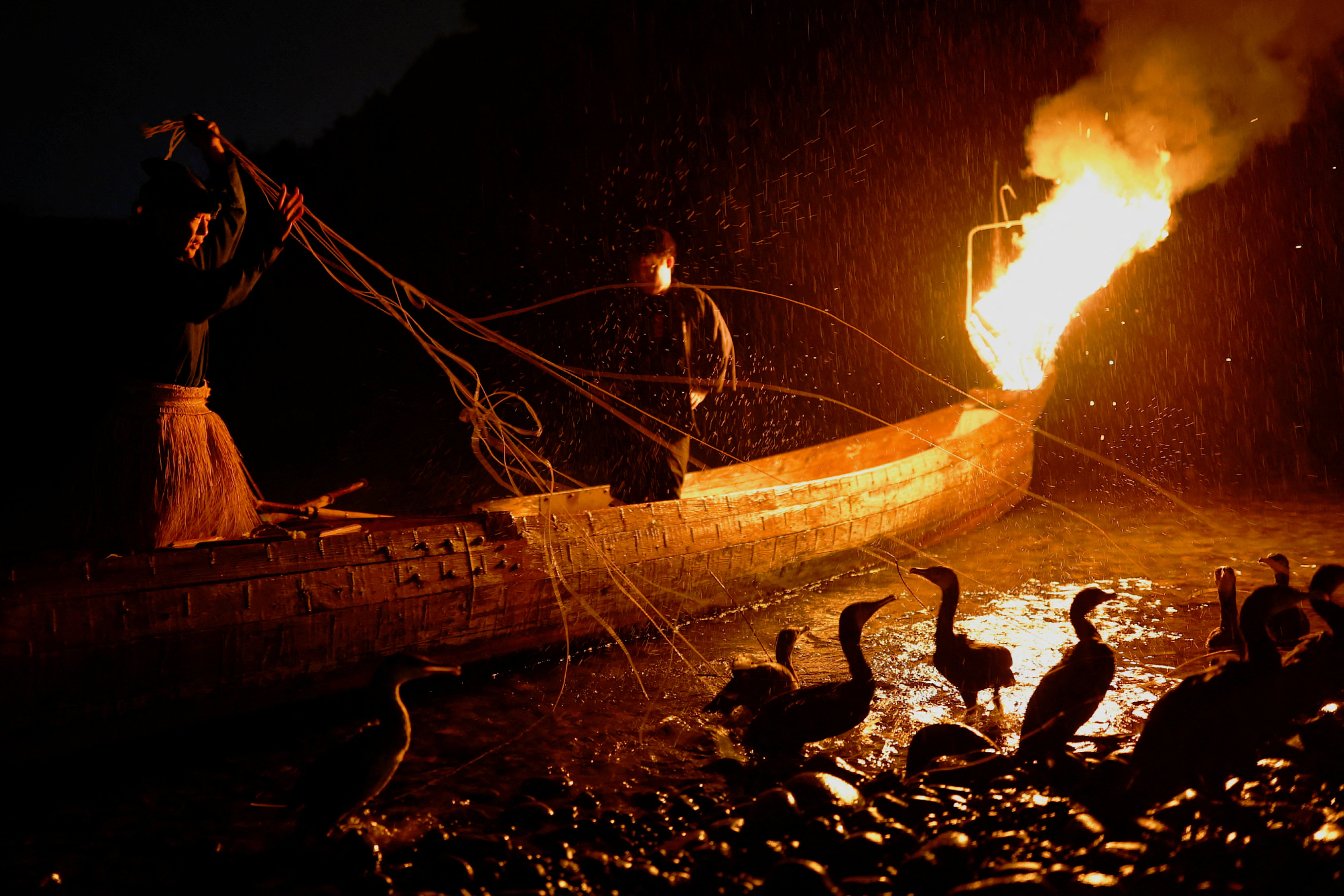
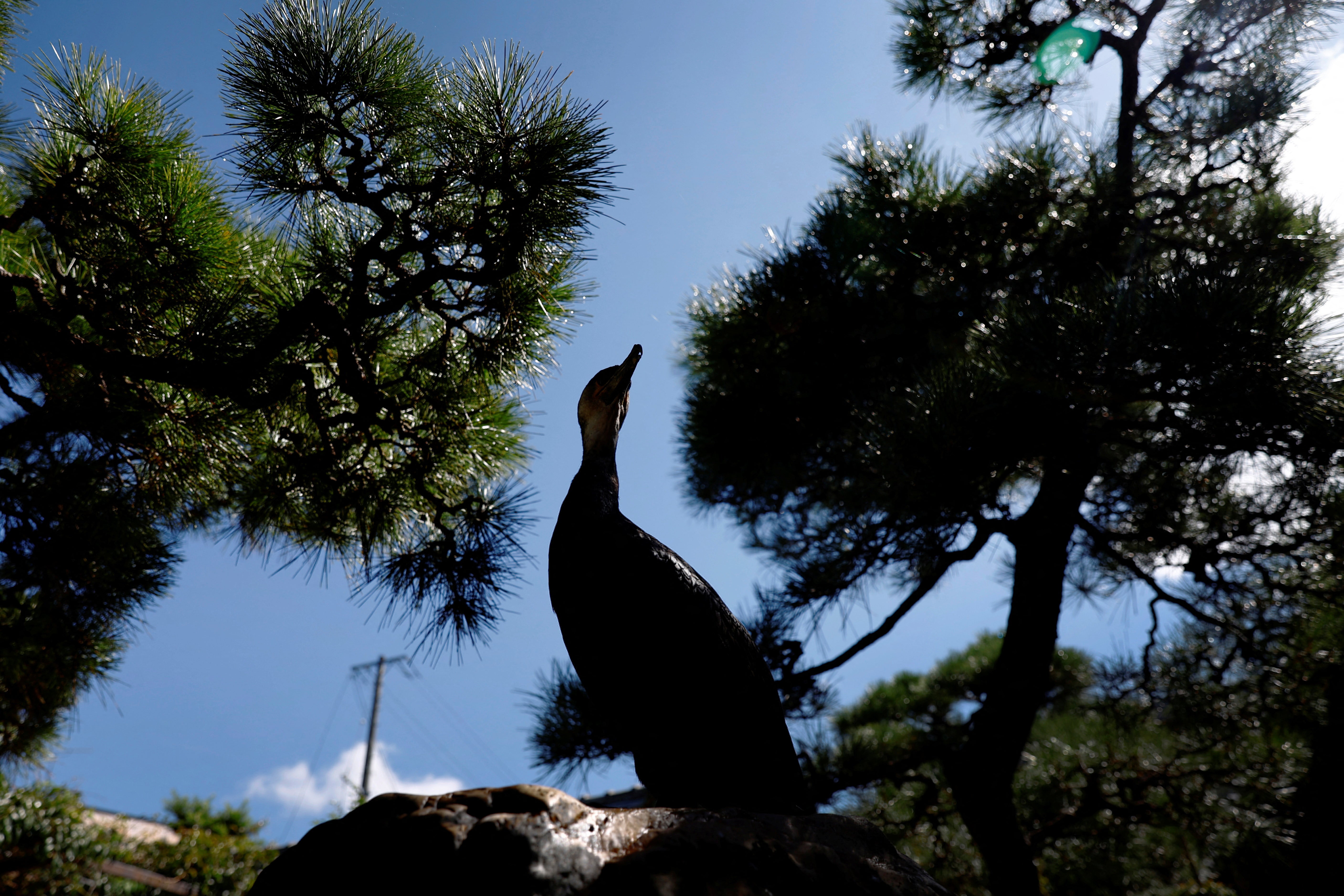
Environmental studies have confirmed his concerns. Temperatures in the Nagara River have risen to a high of 30C (86F), delaying the spawning period of the ayu by a month, said Gifu University associate professor Morihiro Harada.
“I want my son to inherit my job, but it’s tough to make a living,” Adachi said. “If we cannot catch fish anymore, our motivation is gone and there’s no meaning in what we do.”
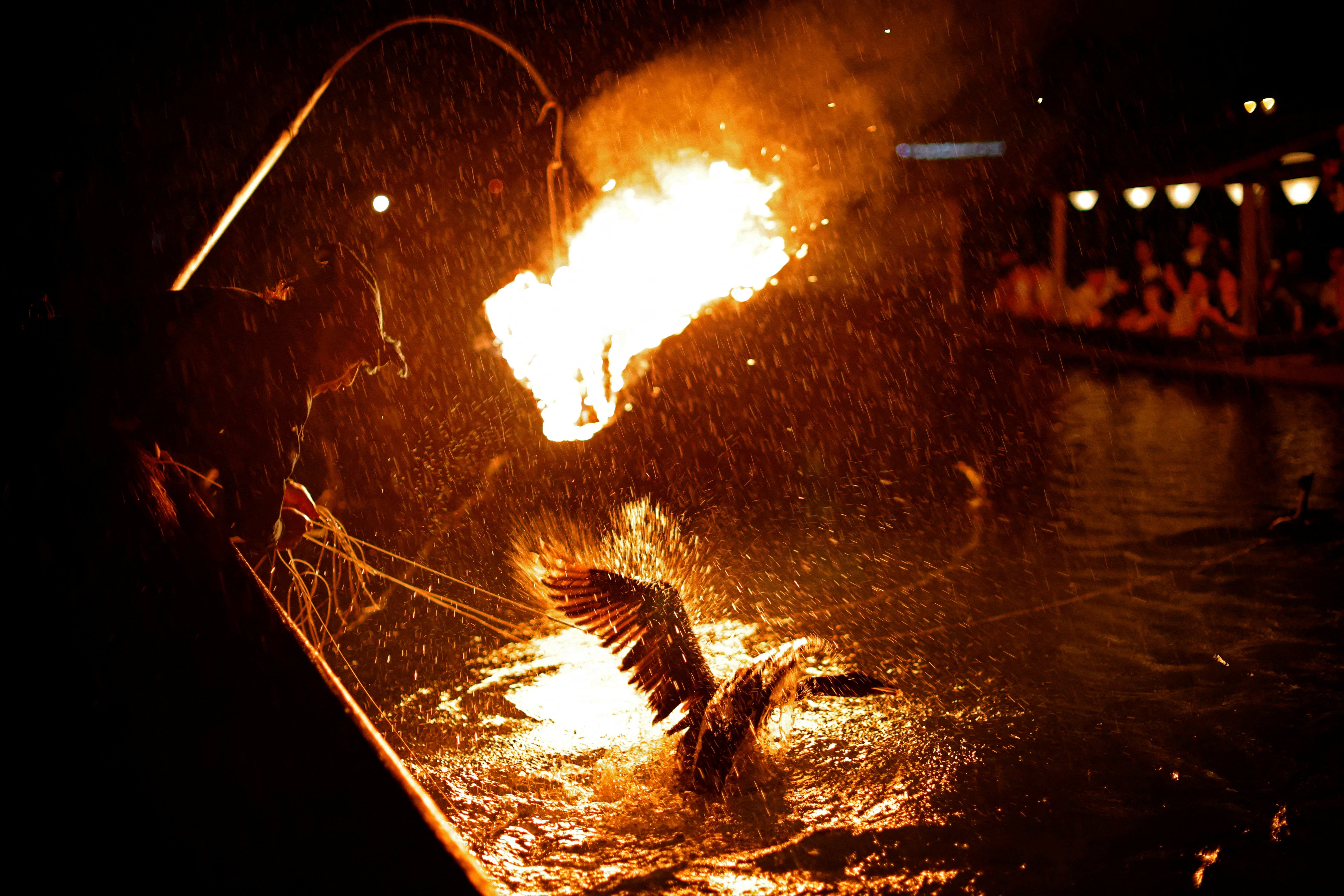
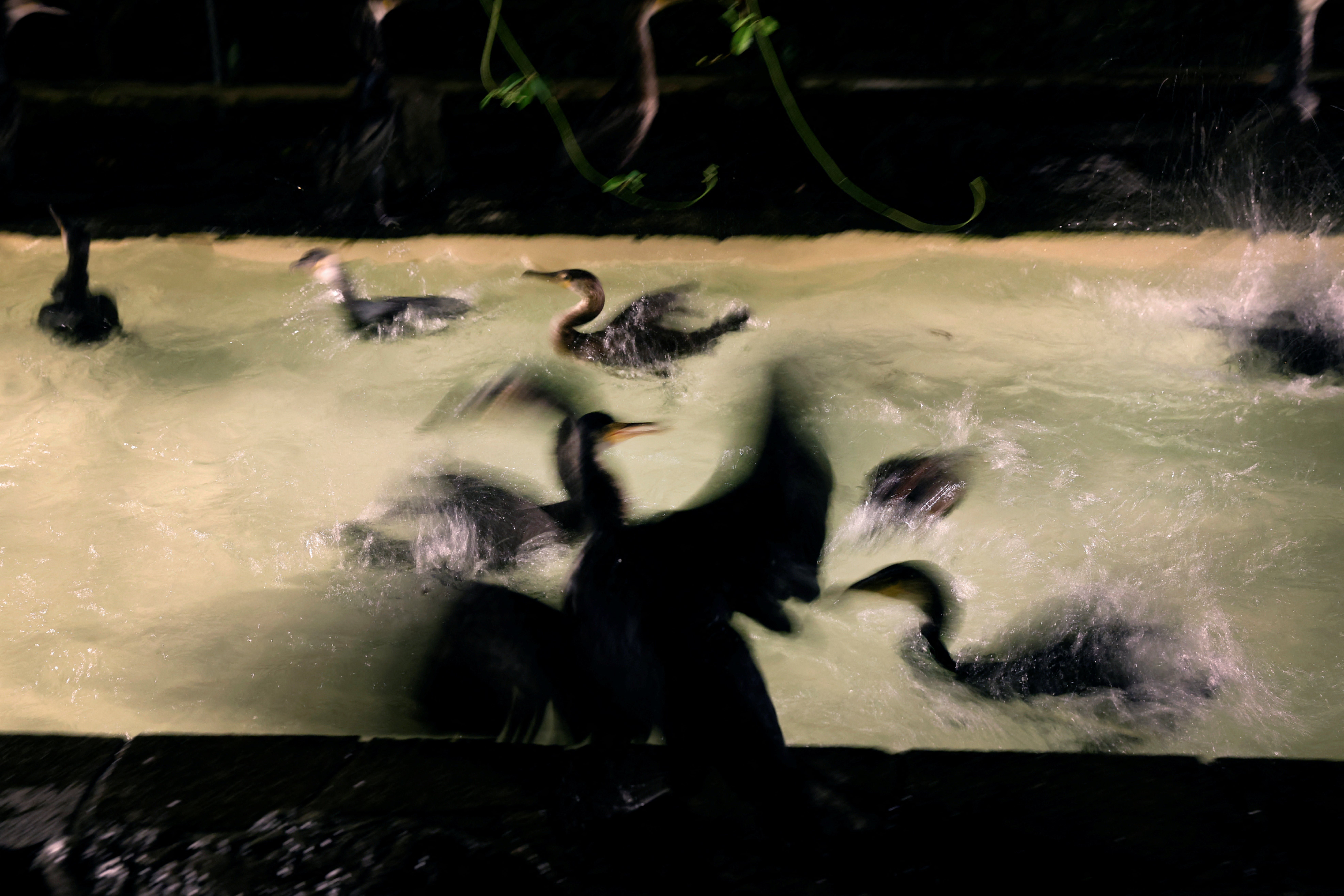
Reuters
Join our commenting forum
Join thought-provoking conversations, follow other Independent readers and see their replies
Comments